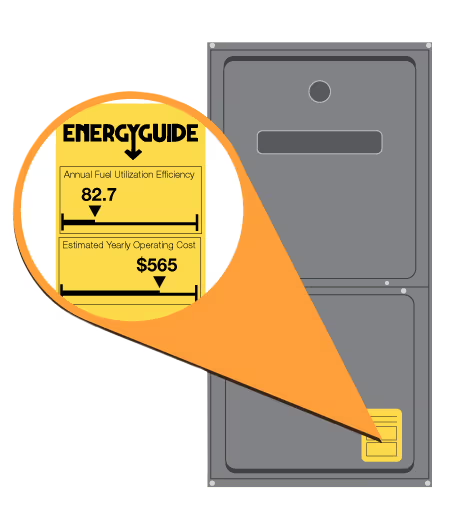As the temperatures drop, the decision to install a new furnace becomes crucial for homeowners seeking warmth and comfort. One of the main options you'll have to decide on is a gas versus an electric furnace. Each option comes with its own set of advantages and considerations, making it essential to weigh the pros and cons before making a decision.
The Differences You Need To Know About Gas and Electric Furnaces
.jpg?width=448&height=346&name=Understanding%20Furnace%20Flue%20and%20Vent%20Pipes%20(1).jpg)
Installation costs and operational expenses
The cost of installation is often a key factor influencing the decision between gas and electric furnaces. Electric furnaces generally have a more affordable upfront cost, making them an attractive option for budget-conscious homeowners. However, it's important to note that electric furnaces tend to be more expensive to operate in the long run due to higher electricity rates.
On the other hand, gas furnaces usually come with a higher installation cost, but they can be more economical in terms of monthly operational expenses. This is primarily because natural gas is often more cost-effective than electricity. To make an informed decision, homeowners should consider their budget constraints and evaluate the long-term cost implications of both options.
 AFUE ratings
AFUE ratings
Another crucial aspect to consider is the Annual Fuel Utilization Efficiency (AFUE) rating, which indicates the efficiency of a furnace in converting fuel to heat. Gas furnaces typically have higher AFUE ratings than electric furnaces. A higher AFUE rating means more efficient energy utilization, resulting in lower energy wastage and reduced operational costs over time. Homeowners should aim for furnaces with higher AFUE ratings to ensure optimal energy efficiency.
Safety considerations
Safety should always be a top priority when choosing a furnace. Gas furnaces pose potential safety concerns, such as the risk of gas leaks or carbon monoxide emissions. It's crucial to invest in professional installation and regular maintenance to mitigate these risks. Electric furnaces, on the other hand, eliminate the risk of gas-related issues but come with their own set of safety considerations, such as electrical hazards.
Conclusion
In conclusion, the choice between a gas and electric furnace involves a careful evaluation of installation costs, operational expenses, AFUE ratings, and safety considerations. Homeowners must prioritize their preferences, budget constraints, and long-term goals to make an informed decision that ensures both warmth and cost-effectiveness. Consulting with HVAC professionals can provide valuable insights tailored to individual needs, ultimately leading to a comfortable and efficient heating solution for the home.



